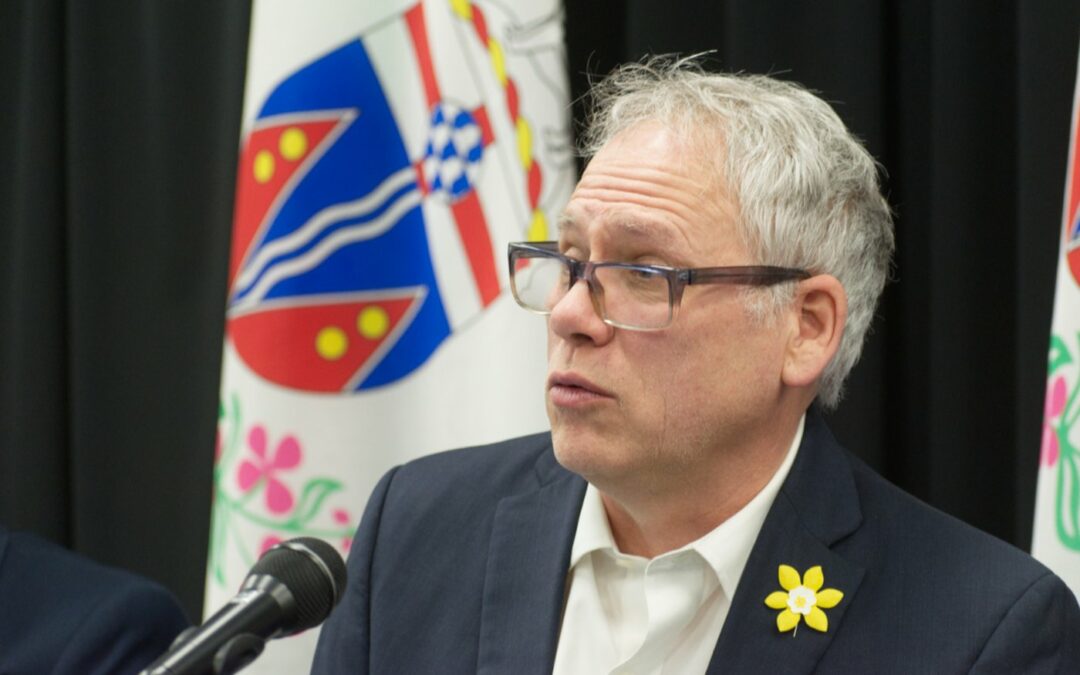Photo: Minister John Streicker addresses reporters in the Yukon government media room on April 8, 2024 / Dana Hatherly, Yukon News
By Talar Stockton
Local Journalism Initiative Reporter
Yukon News
The temporary amendments that Yukon government (YG) made to placer and quartz mining regulations in May undermine Tr’ondëk Hwëch’in (TH) First Nation’s treaty rights, according to a statement released by the First Nation on July 9.
At the end of May, the Yukon government changed the Placer Mining Land Use Regulation, the Quartz Mining Land Use Regulation and the Waters Regulation to extend the licences and approvals of placer miners in the territory. The move came after the Klondike Placer Miners’ Association stopped engagement with the government, citing YG’s “long-standing unwillingness to address bureaucratic delays” when it comes to issuing placer mining licences, including their renewals.
But now, Tr’ondëk Hwëch’in is saying they were not notified by the government of these changes taking place — and they only learned about them after they came into effect. This approach was “unbecoming of our treaty partner,” reads the release from Tr’ondëk Hwëch’in.
The amendments were the subject of a resolution at the Council of Yukon First Nations (CYFN) general assembly in late June. A resolution passed by the assembly called upon the Yukon government to repeal the amendments, which they said were made without engagement or consultation with Yukon First Nations.
If no action is taken, the resolution states CYFN will hold an emergency leadership meeting within 30 days to consider collective and legal responses.
Tr’ondëk Hwëch’in also stated the amendments “will not address the actual issue at hand,” saying that YG should be familiar with renewing mining permits, which are based on a 10-year cycle.
In a press release published May 28, YG said the backlog of permit and licence renewals was due to the 10-year cycle, which “creates a disproportionate number of applications every decade.”
“This surge in permit renewals is entirely foreseeable and could have been addressed by YG with adequate resourcing and capacity,” reads the press release from Tr’ondëk Hwëch’in. “Instead, YG chose a blunt regulatory band-aid that puts the risk on the environment and our treaty rights and interests.”
